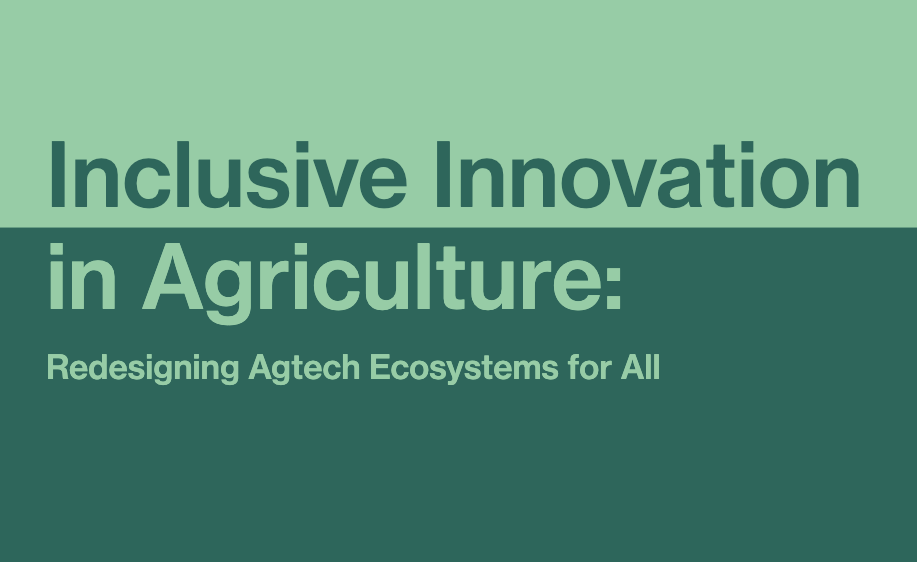Farmhand Ventures publica pesquisa sobre inovação inclusiva na agricultura

Farmhand Ventures publicou um artigo de pesquisa intitulado "Inovação inclusiva na agricultura: Redesenhando Ecossistemas Agtech para Todos". O estudo, financiado pelo Valley Institute for Sustainability, Technology and Agriculture (VISTA) da UC Merced, aborda a necessidade de abordagens inclusivas no desenvolvimento de tecnologia agrícola.
Liderado por Connie Bowen, com contribuições de Suma Reddy, Jamil Wynne e Sarah Mock, o documento se baseia em entrevistas com empresários e organizações de apoio para propor cinco práticas recomendadas para a inovação na agricultura. Ele enfatiza a importância do envolvimento de diversas partes interessadas para garantir que as soluções sejam viáveis, socialmente aceitáveis e praticamente utilizáveis.
Os autores destacam os desafios exclusivos da tecnologia agrícola, incluindo financiamento limitado, restrições sazonais e uma força de trabalho diversificada. Esses desafios exigem estratégias inclusivas que reúnam várias partes interessadas para desenvolver soluções que atendam às necessidades do mundo real. "Incluir as pessoas que realmente fazem o trabalho no processo de inovação diminui o desenvolvimento de produtos", disse Bowen. Ela enfatizou a importância da colaboração para manter a segurança alimentar doméstica, uma vez que menos de 1% dos americanos têm contato direto com fazendas e que a população agrícola atual está envelhecendo.
O professor Joshua Viers, diretor do corpo docente da Farms, Food, Future Innovation Initiative na UC Merced (F3 Innovate), observou que a inovação inclusiva é crucial para melhores resultados na agricultura, especialmente na Califórnia, líder em clima, equidade e desenvolvimento econômico. O relatório fornece estratégias para que os empreendedores se envolvam com todas as partes interessadas, especialmente os grupos marginalizados, garantindo perspectivas diversas no desenvolvimento de soluções.
Suma Reddy, da Riffle Ventures, ressaltou a importância de preencher a lacuna entre os empreendedores de agrotecnologia e aqueles que trabalham nas fazendas. Kimberly Gibson, pesquisadora de pós-doutorado em inovação inclusiva na UC Merced, descreveu o relatório como um recurso valioso para os inovadores de agtech, oferecendo recomendações concretas para alinhar a tecnologia com as necessidades do mundo real.
Leigh Bernacchi, diretor executivo da F3 Innovate na UC Merced, expressou sua esperança de que o guia ajude a criar tecnologia e soluções mais relevantes para desafios significativos na agricultura. O programa F3 Innovate, uma colaboração entre a Central Valley Community Foundation, líderes do setor e pesquisadores da UC Merced, tem como objetivo promover a inovação inclusiva e avançar nas práticas agrícolas sustentáveis.


Respostas